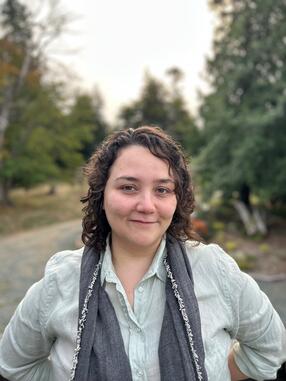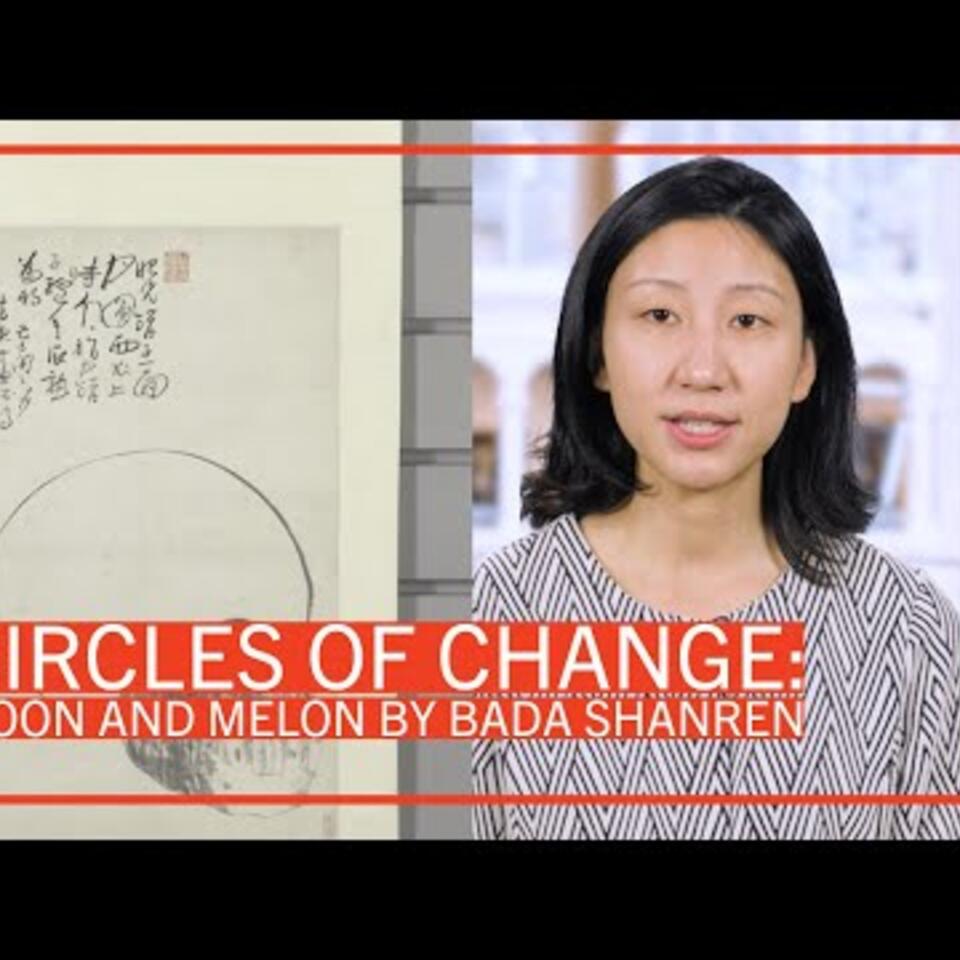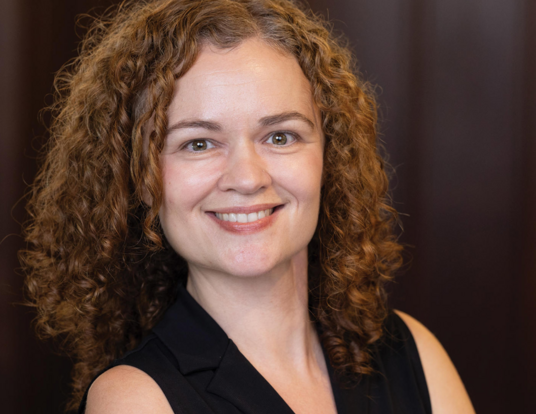Overcoming the "Everyday Horror" of Mexico’s Drug War
How gothic literature can help us look squarely at violence—and take action

In 2007, the year Andrea Garza turned 16, Mexican President Felipe Calderon declared war on drug trafficking and organized crime. Almost overnight, truckloads of armed soldiers appeared on the streets of Tampico, the town in eastern Mexico where she and her family lived. The sounds of gunfire rang out at all times of the day and night. Places she and her friends had gathered and played as children became crime scenes.
The violence all around Garza was traumatic. What made it haunting, though, was the mind-bending way that the normal and abnormal contaminated one another.

“Sigmund Freud would call it the uncanny, where that which is familiar feels really strange and threatening,” she says. “Normal spaces in which you went trick or treating as a kid? Well, in that street, someone left a body there. When there had been a shooting or someone we knew had been kidnapped, we would instead talk about how terrible the physics test was going to be. It felt like being gaslit, even by yourself.”
Today, Garza bears witness to the reality of growing up in Mexico during the drug wars through her work as a PhD student in romance languages and literatures at the Harvard Kenneth C. Griffin Graduate School of Arts and Sciences (Harvard Griffin GSAS). By studying works of “quotidian horror,” she explores the ways that stories can enable us to look squarely at the atrocious and take action instead of turning away or falling prey to paralysis.
From Normalcy to Alienation
Garza’s life was not always haunted by violence. Before 2007, she lived a normal, even privileged childhood: loving parents, family vacations, shopping trips to Texas. Then the shootings started—in the middle of the day, outside of school, on the way to school, at night. On one occasion, the violence was so intense her school canceled classes scheduled for the next day. She was never caught directly in the line of fire, but she could never escape the violence either.
“It was really bad,” she says. “Sometimes, you found out through social media and rumors. Sometimes, I heard shooting outside of my house, a few blocks away. I've been on the floor, phone in hand, texting people ‘Are you okay? Is the shooting going your way?’ It changes the spaces in which you exist. Suddenly, the bridge next to your favorite Chinese restaurant is now, ‘Oh, that's the place where they hung up four bodies.’”
I've been on the ground, texting people, being like, “Are you okay? Is the shooting coming your way?”
—Andrea Garza
Garza says she spent much of her last two years in high school indoors playing video games with her friends, who seemed, at least outwardly, unaffected by the drumbeat of shootings and kidnappings. Their response—or lack thereof—increased her feelings of horror and alienation. “My friends would tell me in a matter-of-fact way about seeing terrible things, and I would be like, ‘How are you telling me this like that?’ And they’d say, ‘Oh, you just get used to it.’”
Sounds of Alarm
With her parents' encouragement, Garza decided to leave Mexico and attend Boston’s Emerson College for her undergraduate degree. The move to Boston was challenging for Garza, particularly at the start. She lived close to the Longwood Medical Area (LMA), which meant the frequent sounds of ambulances and helicopters.
“I had associated those sounds with shootings,” she says. “That first month of living by the LMA, hearing sirens all the time, was super triggering. I was very stressed, always on edge. One time, I just started crying, listening, saying to myself, ‘This is not Mexico,’ and breaking down because it was so difficult to listen, being surrounded by those sounds of alarm.”
Garza persevered—not only through her own stress reactions, but also the tragic death of her brother during her senior year—and got her degree from Emerson in 2014. She took 2015 to grieve for her brother. She studied for the GRE. She married. Finally, she enrolled at Stanford University for a master’s degree in Latin American studies, where she focused on the literature of border crossings and human rights. There, she volunteered at the law clinic as a translator between law students and people asking for asylum. “Then I went to a detention center in South Texas as a translator for lawyers,” she remembers. “It was heartbreaking. Every case was terrible, and you couldn’t win them all. Even weeks afterward, I’d remember something someone said and just start crying.”
Resolving to stay close to the stories of people like those she had helped at the clinic, Garza began researching PhD programs. She felt discouraged by the rejection letters she received. Then she heard from Harvard. “I got the call while I was interviewing at the University of California, Irvine. It was still a difficult choice, because Irvine was also a very good fit, but my parents said, ‘You’re going to Harvard!’”
A Gothic Vision
The ability to bring her lived experiences to bear on her research is one of the great strengths of Garza’s PhD work, according to Harvard Romance Languages and Literatures Professor Alejandra Vela Martínez. “Andrea’s personal engagement not only grounds her scholarship in a profound sense of reality, but also allows her to capture the subtle and pervasive ways violence shapes both individual consciousness and society at large.”
Through the concept of quotidian horror—the persistent and often normalized forms of violence that permeate daily life in Mexico—Vela Martínez says Garza uses everyday experiences “not as mere background, but as a critical lens through which to analyze literary and cultural production.”
“In Mexico, unfortunately, it is all too common for discussions about national life to revolve around the many forms of violence that impact the country,” she says. “Yet what Andrea does is truly original: she turns this everyday reality into an interpretive framework, using it to examine how literature and cultural objects both reflect and challenge these conditions.”
Your neighbor was kidnapped, and you just have to pretend that nothing happened and that it doesn't affect you in any way. You have to go to work. That's quotidian horror.
—Andrea Garza
In her PhD work, Garza asks how a gothic vision of the world, which foregrounds fear and the supernatural, can enable human beings to bear quotidian horror without averting their eyes or going insane. Focusing on 21st-century Mexican literature—including documentary, short story, journalism, and poetry—Garza explores topics like the war on drugs, forced disappearances, and femicides, including the more than 500 women killed between 1993 and 2011 in the northern Mexican city of Ciudad Juárez. She cites the example of the contemporary documentary, Las Tres Muertes de Marisela Escobedo (The Three Deaths of Marisela Escobedo), streaming on Netflix.
“The first killing of Marisela is when she loses her daughter,” Garza says. “The second is when she tracks down the killer, brings him to court, only to see him released on a technicality after confessing to the crime. The third killing is when Marisela herself is killed right in front of the state Government Palace.”
A gothic approach to the story, Garza contends, would be one in which all who walk into the courtroom where the killer was acquitted think about what happened there, all the while feeling the presence of Marisela Escobedo. “It would be to behave in that courtroom as if Marisela is watching, or as if it's happening again,” she says. “It would be to experience that history almost physically, the spectrality that remains.”
People often say, “Mexico is a cemetery” since the drug war. Garza’s work explores what it would mean for those speakers to take their words seriously. “What if you were to allow yourself to think ghosts are real and everywhere you walk by, there's a ghost?” she asks. “These ghosts are about the Mexican drug war. If you allow yourself to see a street as a place where someone was murdered, I think that changes the way you move in that space. And maybe out of it, too.”
It Is My Ghost

At Harvard Griffin GSAS, Garza’s academic and personal experience has been shaped by her advisor, Doris Sommer, the Ira and Jewell Williams Professor of Romance Languages and Literatures and of African and African American Studies. Sommers says that her advisee makes literature work for those who need to face the unspeakable.
“Andrea brings her readers along, not to get thrills, in a familiar, almost pornographic response to horror, but through putting thrill on trial,” Sommer says. “How does horror writing work to naturalize violence? And how do readers either consume that writing or feel trapped in their own perverse pleasures? Andrea has mastered the art of framing us as readers, including herself. We are incredibly proud of her as a person and a brilliant intellectual.”
Sommer’s influence on her student has also extended beyond academics to ethics. “Doris taught me that the pain of others is not owed to us,” Garza explains. “For example, Rigoberta Menchú, survivor of the Guatemalan genocide, gave testimony but said, ‘I have my secrets, and I won’t tell you them.’ As a reader, you want the secrets, but you’re not entitled to them. Doris says reading can become a violation if you demand suffering from the author. That perspective has changed how I read testimonies and understand trauma.”
Andrea brings her readers along, not to get thrills, in a familiar, almost pornographic response to horror, but through putting thrill on trial.
—Doris Sommer
Ira and Jewell Williams Professor of Romance Languages and Literatures and of African and African American Studies
Garza is currently working on a translation project and a small collection of short stories about growing up in Mexico during the drug war. “Hopefully, I’ll finish it by December, and maybe someone will publish it,” she says. She believes that only by acknowledging our responsibility to the ghosts of those murdered and disappeared can we find the strength to live with the past that birthed them—and create a better future.
“The instant that you stop saying, ‘That's not my problem. That's not my ghost,’ and you start saying, ‘Well, actually, it is my ghost,’ and accept you have an ethical responsibility to them, I think it makes you stronger,” she says. “It makes you a more aware person. It makes you more willing to act in ways that should lessen that suffering in the world.”
Banner image courtesy of The Three Deaths of Marisela Escobedo on Netflix, 2020.
Get the Latest Updates
Join Our Newsletter
Subscribe to Colloquy Podcast
Simplecast





